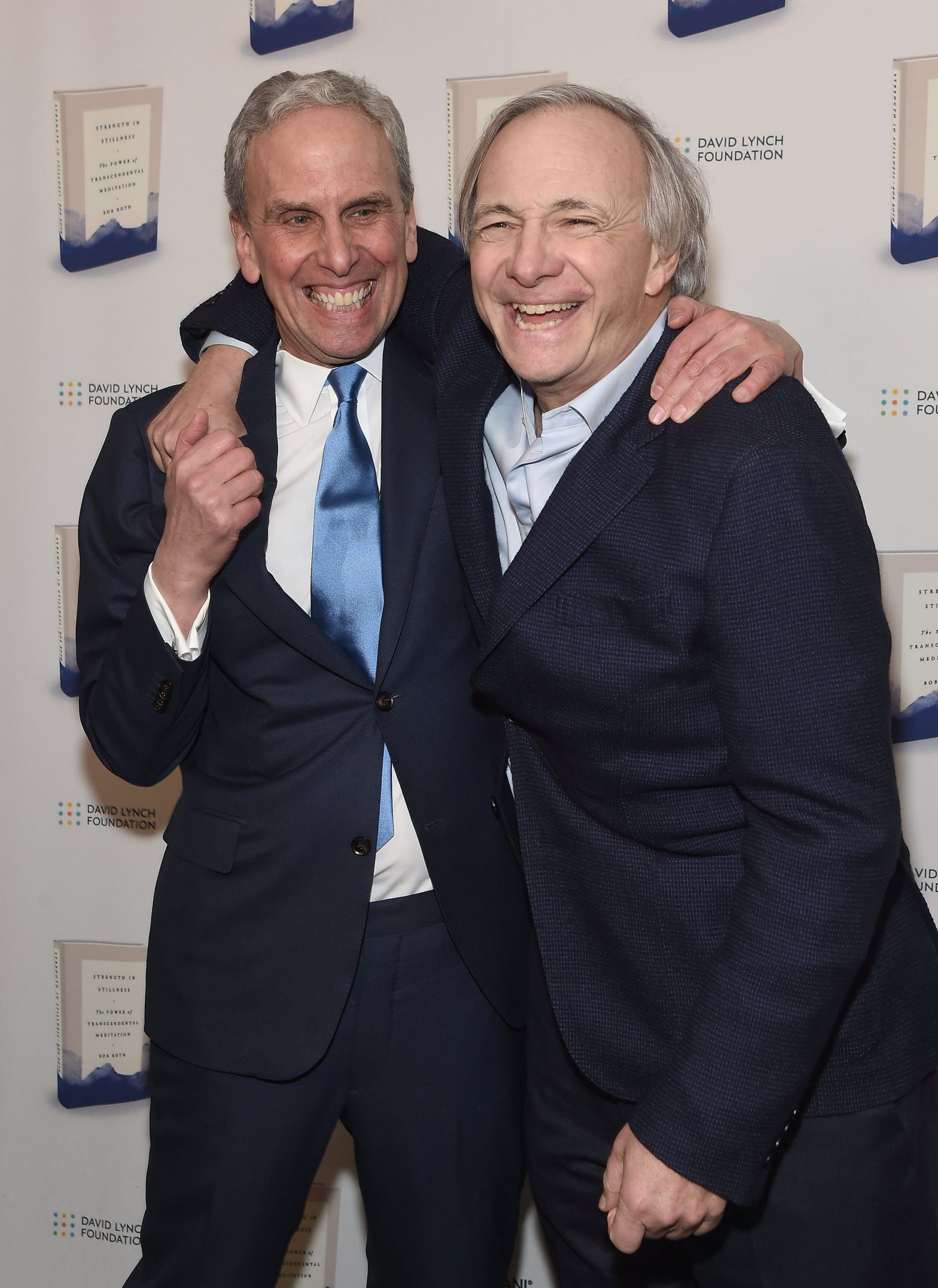Long before it was cool, Ray Dalio credited his financial success to a simple practice: a daily meditation.
Twice per day, the 72-year-old billionaire closes his eyes and repeats a short mantra in his head for 20 minutes at a time, he tells CNBC Make It. It’s a practice known as Transcendental Meditation (TM), which Dalio says he adopted in 1969 — six years before he founded Westport, Connecticut-based hedge fund Bridgewater Associates.
Over the following five decades, Dalio built Bridgewater into the world’s largest hedge fund before stepping down as co-CEO in 2017. Today, Bridgewater manages more than $150 billion in assets.
Since stepping down, Dalio says he’s been on a mission to widely share the knowledge that helped enable his success. That includes his meditation practice, which he once called “the single most important reason for whatever success I’ve had.”
Here’s an inside look at those meditations, and how Dalio says they help:
Inside Dalio’s 20-minute meditation sessions
The first step, Dalio says, is to find a quiet space. Then, sit comfortably, close your eyes and think of your mantra.
In TM, you don’t share your mantra — it’s a proprietary practice where you learn your personal mantra during a four-day training course, which can cost you between $380 and $960. But a popular example, Dalio says, is the syllable: “om.”
Once you have your mantra, “you sit there in peace and you repeat that mantra over and over again,” he says. Eventually, the repetition supersedes the rest of your thoughts, sending you into a transcendent state.
“You’re peaceful. You’re quiet,” he says. “You’re not awake, but you’re not asleep.”
On a normal day, Dalio does one 20-minute session as soon as he wakes up in the morning and another one right before eating dinner. Each, he says, feels like a “20-minute vacation” that eases anxieties and puts him into a state of relaxation — enabling him to make better business decisions.
It’s more important to get two sessions in per day, he says, than trying to do them at the same time every day. If work commitments disrupt his normal routine, he’ll add a meditation elsewhere in his schedule to maintain his two-per-day cadence.
And the more you do it, he says, the more easily you’ll start to sense during the day when meditations might be necessary: “You can feel that little bit of anxiety, or whatever it is, and you say [to yourself], ‘Oh, I need to go meditate.’
Why his meditations are both ‘terrific and frustrating’ — and ultimately worth it
Research from 2016 shows that practicing TM can help alleviate stress, anxiety and depression. For Dalio, there’s another bonus: “When you’re doing down into a meditation, these amazing ideas come to you.”
It’s both “terrific and frustrating,” he explains, since the point of the meditation is to put aside your ideas and focus on your mantra. “Sometimes I almost want to have a pencil and paper next to me,” he says. “I don’t want to lose the idea.”
Dalio’s theory: Great ideas hit you during meditations because you’re tapping into your subconscious, where your creativity tends to thrive. He compares it to the relaxation you experience while taking a hot shower and letting the creative ideas just come to you.
“When you want to be creative, you don’t say I’m going to go work hard and think about being creative,” he says.
Though Dalio resists the urge to write down his ideas during his meditation sessions, he says he emerges from them better equipped to make tough decisions.
“I’ll see things clearer,” he says.
CORRECTION: This article has been updated to show that Bridgewater manages more than $150 billion in assets.
Don’t miss:
Bitcoin vs. gold: Here’s what billionaire Ray Dalio thinks
Billionaire Ray Dalio on his routine-free life, what keeps him up at night and his next chapter
Billionaire Ray Dalio: The most successful people are ‘by and large’ better at doing this one thing
